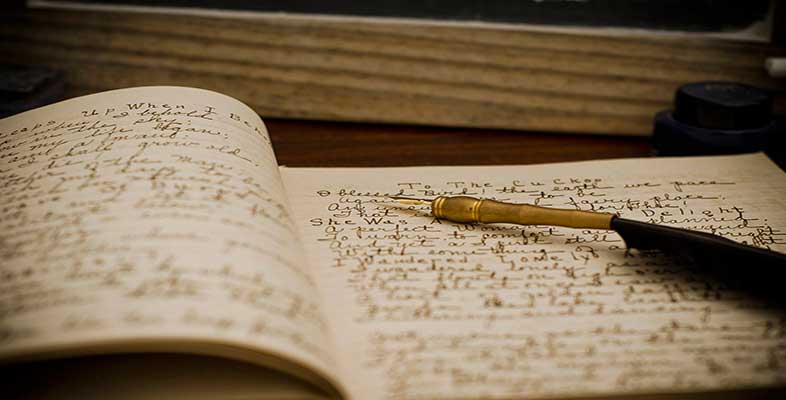1.3 Sources of characters
Activity 3
Click on ‘Sources of characters’ below and read the extract. This outlines the main methods of finding and developing fictional characters.
Sources of characters [Tip: hold Ctrl and click a link to open it in a new tab. (Hide tip)]
Activity 4
Click below to listen to novelists discuss themselves and their fiction.
Transcript: The use of autobiography in fiction
In the audio file above, novelists talk about how they have used themselves in their fiction (‘the autobiographical method’), often as a starting point for the creation of someone different.
Activity 5
Imagine a character very like you but give him or her a dramatic external alteration. You might make the character the opposite sex, for example, or make them significantly older or younger. You choose.
Now write a brief character sketch in which you reveal the character’s appearance, their feelings about it, and their current circumstances. Use a third-person narrator (‘he’ or ‘she’).
Discussion
‘Write what you know’ is a familiar piece of advice often given to writers. But ‘what you know’ can expand through imagination and sympathetic identification with others who are not like you at all. This is similar to what actors do – they are not confined to ‘playing themselves’ – and neither are writers.
Activity 6
Click below to listen to novelists discussing how they develop their fictional characters using a mixture of methodical research, accident and empathy.
Transcript: Creating characters
Discussion
In your notebook, as an ongoing exercise, try Monique Roffey’s method of building character outlines to flesh out your characters and see how much you can discover about them.
Use headings:
- Physical/biological: age, height, size, state of health, assets, flaws, sexuality, gait, voice.
- Psychological: intelligence, temperament, happiness/unhappiness, attitudes, self-knowledge, unconscious aspects.
- Interpersonal/cultural: family, friends, colleagues, birthplace, education, hobbies, beliefs, values, lifestyle.
- Personal history: major events in the life, including the best and the most traumatic.
